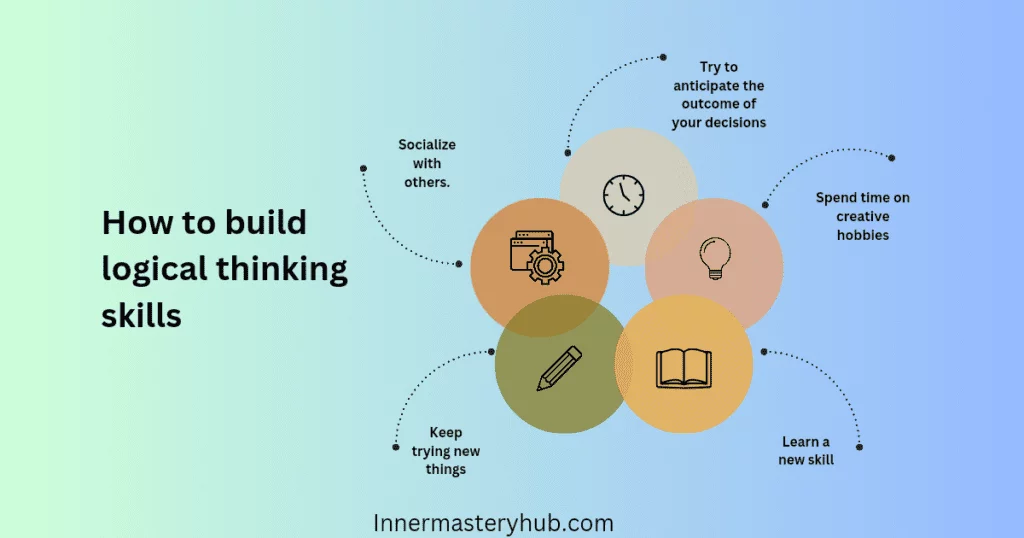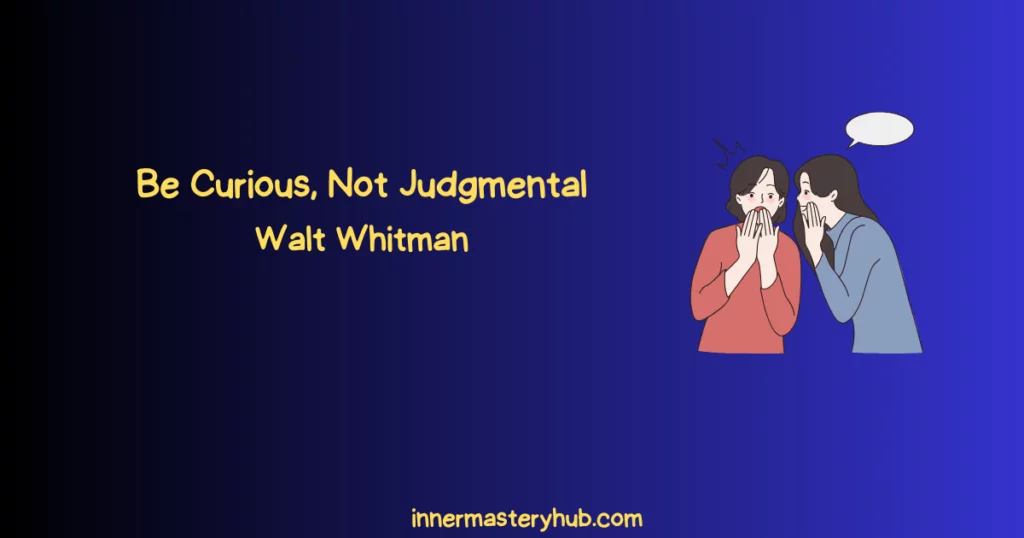
The cornerstone of our self-perception, self-esteem, is essential in determining how our lives turn out. It affects our choices, relationships, and general well-being. Building a strong self-esteem is a continuous process in the personal development journey that takes commitment and deliberate work. Thankfully, there is a plethora of information on self-esteem books at our disposal to lead us on this life-changing adventure.
Books about self-esteem provide priceless insights and valuable techniques to help us overcome self-doubt, stifle our inner critic, and cultivate a good self-image. These book friends give us the confidence to own our flaws, celebrate our virtues, and lead genuine lives.
We’ll explore a carefully chosen list of self-esteem books to help in this extensive guide, which has motivated and empowered countless people. Be ready to take a life-changing journey of self-discovery and realize your infinite potential.
RELATED: The Journey to Self-Love: Uncover Life-Changing Self-Acceptance Quotes for Personal Growth
Table of Contents
The 10 Best Self-Esteem Books for Adults
10 Books on confidence and self-esteem:

This groundbreaking bestselling book explores the power of vulnerability and how embracing it can lead to greater self-esteem, resilience, and connection. Brown’s research and personal stories resonate deeply with readers, offering a roadmap to living a wholehearted life.

This practical workbook provides a step-by-step guide to improving self-esteem. It includes exercises, assessments, and strategies to identify and challenge negative self-talk, overcome perfectionism, and build stronger self-worth.

This classic self-help book offers a comprehensive approach to overcoming depression and anxiety. Burns introduces cognitive behavioural therapy (CBT) techniques to help readers identify and change distorted thinking patterns that contribute to low self-esteem.

Branden outlines six essential principles for building healthy self-esteem: living consciously, practicing self-acceptance, taking responsibility for one’s life, pursuing personal goals, asserting oneself, and living with integrity.

Neff challenges the traditional notion of self-esteem, emphasizing the importance of self-compassion and acceptance. She provides practical guidance on cultivating kindness towards oneself, even in the face of setbacks and imperfections.

Brown delves into wholehearted living, encouraging readers to embrace their imperfections and vulnerabilities. She emphasizes the importance of authenticity, courage, and compassion in cultivating a strong sense of self-worth.

Harris explores the psychology of confidence and self-doubt, drawing on neuroscience and behavioural psychology insights. He provides practical strategies for overcoming self-limiting beliefs and building unshakeable confidence.

This CBT-based workbook offers a step-by-step guide to managing negative thoughts and emotions. It includes techniques for identifying and challenging distorted thinking patterns, reducing anxiety and depression, and improving self-esteem.
- The Body Has Its Wisdom: The Body-Mind Connection in the Healing of Disease by Deepak Chopra

Chopra explores the connection between the mind and body, emphasizing the role of self-awareness and compassion in promoting healing. He guides cultivating a positive self-image and using the mind-body connection to enhance self-esteem.

Ruiz, a Toltec spiritual teacher, offers a powerful guide to self-transformation. He emphasizes the importance of self-acceptance, forgiveness, and personal responsibility in cultivating healthy self-esteem.
These ten books offer many insights and practical strategies for building self-esteem and transforming your inner life. By embracing these empowering messages, you can cultivate unshakeable confidence, embrace your imperfections, and unlock your true potential.
3 Good Books That Address Low Self-Esteem
1. Self-Esteem: Fast Proven Treatment for Recovery from Low Self-Esteem

“Self-Esteem: Fast Proven Treatment for Recovery from Low Self-Esteem” is a book by Jennifer Alison that offers practical advice on overcoming low self-esteem. The book has been praised for its easy-to-implement steps and international bestseller status.
Here are some key points from the book:
- Low self-esteem can affect every area of our lives. It can make us feel anxious, depressed, and withdrawn. It can also hold us back from achieving our goals.
- There are many causes of low self-esteem. Some common causes include childhood experiences, negative self-talk, and unrealistic expectations.
- The good news is that low self-esteem can be treated. We can do many things to improve our self-image and boost our confidence.

- This book is a well-organized and practical guide to overcoming low self-esteem using cognitive behavioural therapy (CBT) techniques.
- The author, Dr. Melanie Fennell, is a clinical psychologist with over 20 years of experience treating low self-esteem.
- The book is divided into three parts:
- Understanding low self-esteem
- Changing unhelpful thinking patterns
- Building a positive sense of self
- Each part includes chapters that explain the concepts in an easy-to-understand way, as well as exercises and worksheets to help you put the techniques into practice.

Building Confidence from the Inside Out
“Beat Low Self-Esteem with CBT” by Christine Wilding and Stephen Palmer isn’t a magic wand, but it’s a potent tool in your self-esteem toolbox. Here’s a breakdown:
- Action-oriented: This book isn’t just theory. It’s packed with practical exercises and “personal assignments” to help you tackle low self-esteem head-on.
- CBT focus: Grounded in cognitive-behavioural therapy (CBT), the book teaches you to identify and challenge negative thought patterns that fuel low self-esteem.
- Holistic approach: It goes beyond self-talk, addressing self-compassion, motivation, and confidence in various life areas like relationships and work.
- Accessible language: Free from jargon, the book explains CBT concepts and directly.
These are just a few of the many great books that address low self-esteem. If you’re struggling with low self-esteem, I encourage you to read these books and explore other resources to help you build your confidence and self-worth.
3 Self-Esteem Books for Kids (picture books)
Giles Andreae’s “Giraffes Can’t Dance” is more than just a children’s book; it’s a heartwarming celebration of embracing individuality and defying expectations. Gerald the giraffe longs to join the jungle animals’ grand ball, but his spindly legs and wobbly neck make him feel awkward and out of place. His mantra, “Giraffes can’t dance,” echoes the limiting beliefs that hold him back.

- Uniquely endearing protagonist Gerald’s self-consciousness and yearning to fit in resonate with children and adults who have ever felt like they don’t belong.
- Rhyming text with rhythm: Andreae’s playful verses dance across the pages, perfectly capturing the joyous chaos of the animal ball and Gerald’s internal conflict.
- Guy Parker-Rees’ illustrations: The vibrant artwork explodes with personality, showcasing each animal’s distinct style and Gerald’s gradual transformation from hesitant to hoof-stomping reveller.
- Empowering message: The book’s gentle nudge towards self-acceptance and finding your groove is subtle and profound. Gerald’s triumph isn’t about proving he can do the same steps as everyone else; it’s about celebrating his unique way of moving and finding joy in his skin (or, in his case, fur).
“Just Because” by Janette Oke, part of her beloved “Love Comes Softly” series, takes readers on a heartwarming journey of love, faith, and second chances.

- Engaging characters: Oke’s ability to breathe life into her characters shines through. Elizabeth, with her quiet strength and unwavering faith, is instantly relatable. We root for her as she navigates the challenges of raising a family alone and opening her heart to love again.
- Timeless themes: The story tackles universal themes of grief, forgiveness, and finding hope in unexpected places. These themes resonate deeply, regardless of the reader’s background or beliefs.
- Faithful backdrop: The story unfolds against the backdrop of a close-knit Christian community. While faith plays a central role, it’s not preachy or overbearing, offering comfort and support without feeling forced.
- Beautifully written: Oke’s prose is simple yet evocative, transporting readers to the Canadian prairie with vivid descriptions and immersing them in the characters’ emotions.

The Wonderful Things You Will Be is a gorgeous and heartwarming children’s picture book written and illustrated by Emily Winfield Martin.
- Stunning illustrations: The book’s most striking feature is its beautiful and detailed illustrations. Each page is a riot of colour and warmth, showcasing diverse children in fantastical settings. They’re sure to capture the imagination of any young reader.
- Rhyming prose: Martin’s lyrical text flows beautifully, with simple yet evocative rhymes that roll off the tongue. The repetition of certain lines creates a sense of rhythm and comfort, making the book perfect for bedtime reading.
- Uplifting message: The book’s core message is boundless possibility and encouragement. It reminds children that they have the potential to achieve great things, no matter who they are or what they dream of becoming.
- Diverse representation: The illustrations depict children of all ethnicities, backgrounds, and abilities, ensuring every child feels seen and celebrated. This inclusivity is crucial in fostering a sense of belonging and self-worth.
What Books on Self-Esteem Are Recommended for Teenage Girls?
Here are some recommended books on self-esteem for teenage girls:
- The Body Image Book for Girls: Love Yourself and Grow Up Fearless by Charlotte H. Markey Book The Body Image Book for Girls: Love Yourself and Grow Up Fearless
This book helps girls develop a positive body image and overcome negative self-talk about their bodies. It includes information about body image development, eating disorders, and how to challenge unrealistic beauty standards.
This book helps girls understand and manage anxiety. It includes information about the causes of stress, coping mechanisms, and how to seek help if needed.
- Girl Wise: A Guide to Being You! by Jessica Lahey
This book helps girls develop resilience and self-advocacy skills. It includes dealing with difficult situations, setting boundaries, and standing up for yourself.
- Self-Love for Teen Girls: 9 Steps to Transform Your Mindset, Build Self-Esteem, and Create a Life You Truly Love by Megan MacCutcheon
This book helps girls develop self-love and self-acceptance. It includes identifying negative self-talk, challenging limiting beliefs, and practicing self-care.
- The 7 Habits of Highly Effective Teens by Sean Covey
This book helps girls develop practical life skills. It includes information about setting goals, managing time, and building relationships.
These are just a few great books to help teenage girls develop healthy self-esteem. You can talk to a librarian, school counsellor, or another trusted adult if you want more recommendations.
3 books on healing emotional self
Here are 3 books to heal your emotional self:
1. Healing the Shame That Binds You: A Life-Changing Guide to Freeing Yourself from Guilt and Unworthiness by John Bradshaw
Book Healing the Shame That Binds You: A LifeChanging Guide to Freeing Yourself from Guilt and Unworthiness
In this groundbreaking book, John Bradshaw explores the profound impact of shame on our lives and offers a powerful path to healing. He explains how shame can lead to self-destructive behaviours, relationship problems, and emotional detachment. Bradshaw also provides practical guidance on identifying and overcoming shame, cultivating self-compassion, and building healthy relationships.
2. Recovery of Your Inner Child: The Healing Power of Unconditional Love by Lucia Cappcchiaone, PhD
Book Recovery of Your Inner Child: The Healing Power of Unconditional Love
This insightful book explores the inner child concept and how unresolved childhood experiences can impact our emotional well-being. Cappcchiaone guides readers through reconnecting with their inner child, addressing emotional wounds, and fostering self-love. She emphasizes the importance of unconditional love and acceptance in healing from emotional trauma.
3. The Drama of the Gifted Child: The Search for the True Self by Alice Miller
Book The Drama of the Gifted Child: The Search for the True Self
In this thought-provoking book, Alice Miller challenges traditional views of child-rearing and explores the damaging effects of emotional neglect and conditional love. She argues that these experiences can lead to emotional problems, self-doubt, and a distorted sense of self. Miller provides insights into the psychological dynamics of dysfunctional families and offers guidance on reclaiming one’s emotional authenticity.
These three books offer valuable insights and practical guidance on healing emotional wounds and reclaiming emotional well-being. By understanding the impact of our past experiences and cultivating self-compassion, we can embark on a journey of emotional healing and personal growth.






